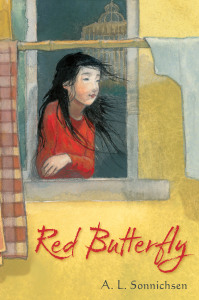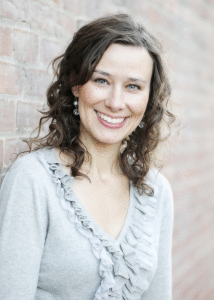Our family has an imperfect adoption story.
It’s the story of a young woman with a heart as big as a mountain and a brain as small as a pea.
Someone who went out to change the world by adopting a helpless baby girl, envisioning all the ideals without acknowledging any of the challenges.
How many of us are in that position? When life gets tough and our idealistic notions lie in fragments at our feet, how many of us look back at our early selves and beat our present selves over the head with a rubber hammer, mumbling, “Stupid, stupid, stupid!”?
Maybe it’s just me.
Let me be clear, I don’t think I’m stupid for adopting my daughter, who is now thirteen. No way. She’s ours and we love her. I am thankful to God for working every out so we could officially adopt her.
If I feel stupid for anything, if I beat myself up for anything, it’s for trying to be her mother when I was so ill-prepared for the challenges.
My first novel recently came out, and a reporter from a local paper wanted to interview me. The phone rang after the time we expected her arrival, and, in trying to disconnect it from the charger, my daughter inadvertently answered it.
What followed was a disaster. I was across the room and saw my daughter’s dismay. She held the phone at arm’s length, all her phone-answering skills abandoning her.
“Just say hello,” I whispered.
She exploded. “I don’t know what to say, Mom! She wants to talk to you, not me! Duh!”
I managed to get the phone away from her, but it was too late. She was embarrassed and volatile, slamming a cupboard closed, stomping, yelling her way down the hallway. And the reporter got to hear it all.
That’s what life is like for us right now. Some very good days, but then there’s a trigger (that I can’t always pinpoint) and everything falls apart. It’s painful, it’s raw, it’s emotional, and our whole family takes a nail-biting ride on the roller coaster.
For me there’s a lot of guilt associated with that roller coaster ride.
We didn’t do things the “right way” when we adopted our daughter.
We were too young by Chinese law to adopt, but we were living in China at the time, so when I spotted a newborn with a cleft lip and palate at the orphanage where I was volunteering, I asked the director if I could bring her home.
My plan was to foster care for her. She was failure to thrive and I’d found her lying flat on her back one day, a bottle propped in her mouth. The orphanage ayis were too busy to give her the attention she needed. I wanted to save this baby’s life. I wanted to make a difference.
My husband and I had been married for two years. He was away at fall camp with his students when the orphanage director gave her approval for us to foster. There was no ceremony. The ayi put her in a disposable diaper, a clean, threadbare sleeper, wrapped her in a blanket, and handed her to me. Every month after that, for seven and a half years, I brought our daughter back to the orphanage to “check her out,” rather like a library book.
For the first ten months of her life we were fostering her for a family in the United States. That family’s adoption fell through, but by then we were attached to this ten-month-old with the huge smile and couldn’t imagine taking her back to the orphanage. That’s when we made the commitment to be her real parents, even though we had to wait almost seven more years for everything to be finalized.
So whenever my daughter has one of those fall-apart moments, when one of those triggers gets flipped and she freaks out, the enemy pours accusations into my head:
You would have treated her differently from the beginning if you’d known you were going to adopt her. You were holding back a piece of your heart all those years to protect yourself from getting hurt. You were too young, too naïve. You didn’t even ask your husband if he supported you bringing home a baby that day. You listened to everyone’s advice and got a lot of things wrong. If she has anger issues it’s YOUR FAULT.
But what does God say?
Trust me.
The past is behind you.
I’m teaching you, I’m molding you. I will never leave you or forsake you.
Haven’t I provided for you before? I’ll provide for you now.
The hard days pass and spring comes for awhile. It’s late and my daughter, who is quite the night owl, peeks through my cracked-open bedroom door. “Can I snuggle with you, Mommy, just for a little while?”
These are the moments I treasure—the calm in the eye of the storm, the promise of better things to come, the assurance that there is grace even in our brokenness and failure. And forgiveness. I’m learning to forgive myself for not being perfect.
Our adoption story isn’t completely written yet. I will cling to hope and leave guilt behind.
___________________________
 A.L. Sonnichsen is the author of a newly published middle-grade novel. In it a young orphaned girl in modern-day China discovers the meaning of family in this inspiring story told in verse, in the tradition of Inside Out and Back Again and Sold.
A.L. Sonnichsen is the author of a newly published middle-grade novel. In it a young orphaned girl in modern-day China discovers the meaning of family in this inspiring story told in verse, in the tradition of Inside Out and Back Again and Sold.
Kara never met her birth mother. Abandoned as an infant, she was taken in by an American woman living in China. Now eleven, Kara spends most of her time in their apartment, wondering why she and Mama cannot leave the city of Tianjin and go live with Daddy in Montana. Mama tells Kara to be content with what she has…but what if Kara secretly wants more?
Told in lyrical, moving verse, Red Butterfly is the story of a girl learning to trust her own voice, discovering that love and family are limitless, and finding the wings she needs to reach new heights.
_________________________________
 Raised in Hong Kong, A.L. Sonnichsen grew up attending British school and riding double-decker buses. As an adult, she spent eight years in Mainland China where she learned that not all baozi are created equal. She also learned some Mandarin, which doesn’t do her much good in the small Eastern Washington town where she now lives with her rather large family. Find out more at http://alsonnichsen.blogspot.com.
Raised in Hong Kong, A.L. Sonnichsen grew up attending British school and riding double-decker buses. As an adult, she spent eight years in Mainland China where she learned that not all baozi are created equal. She also learned some Mandarin, which doesn’t do her much good in the small Eastern Washington town where she now lives with her rather large family. Find out more at http://alsonnichsen.blogspot.com.
